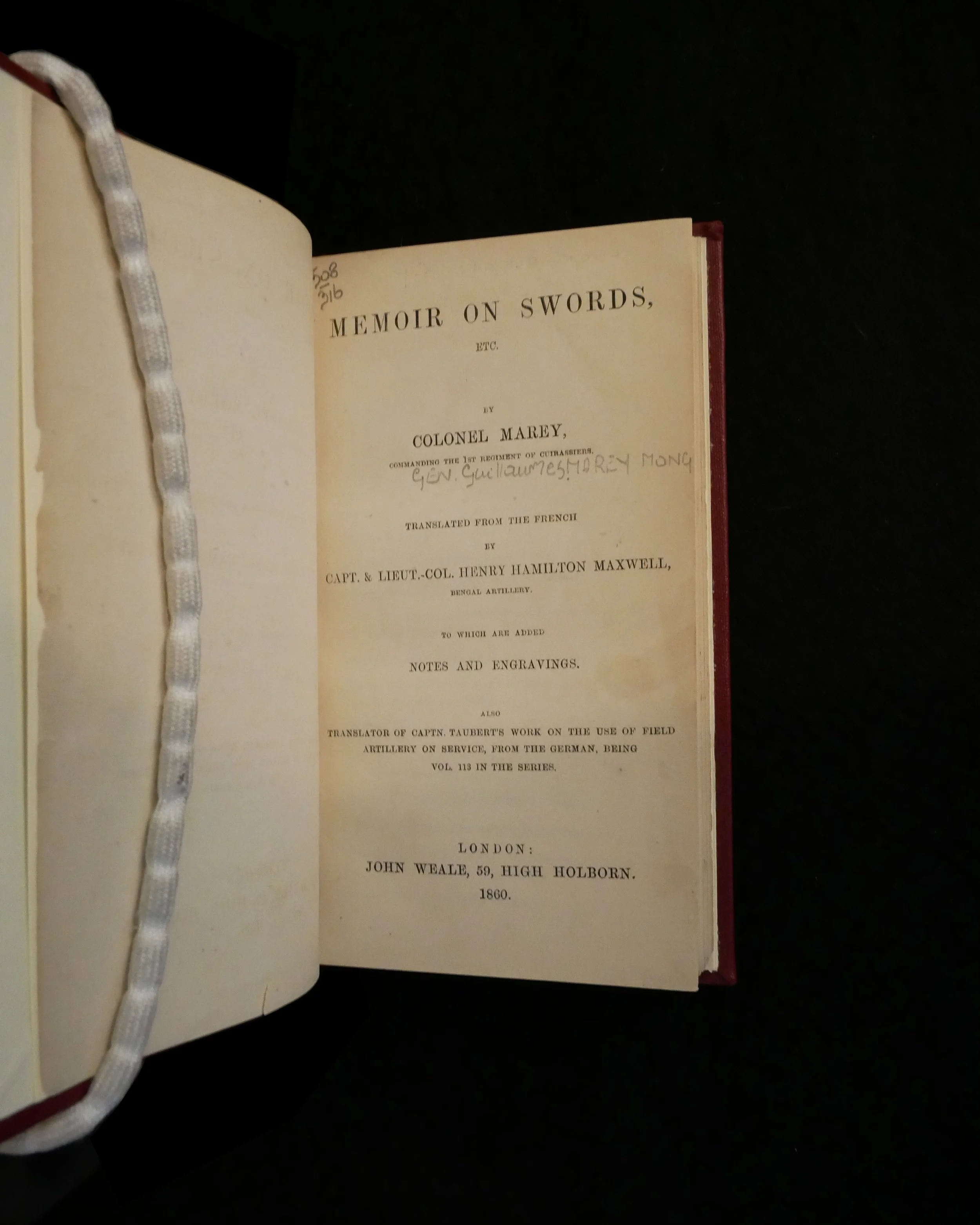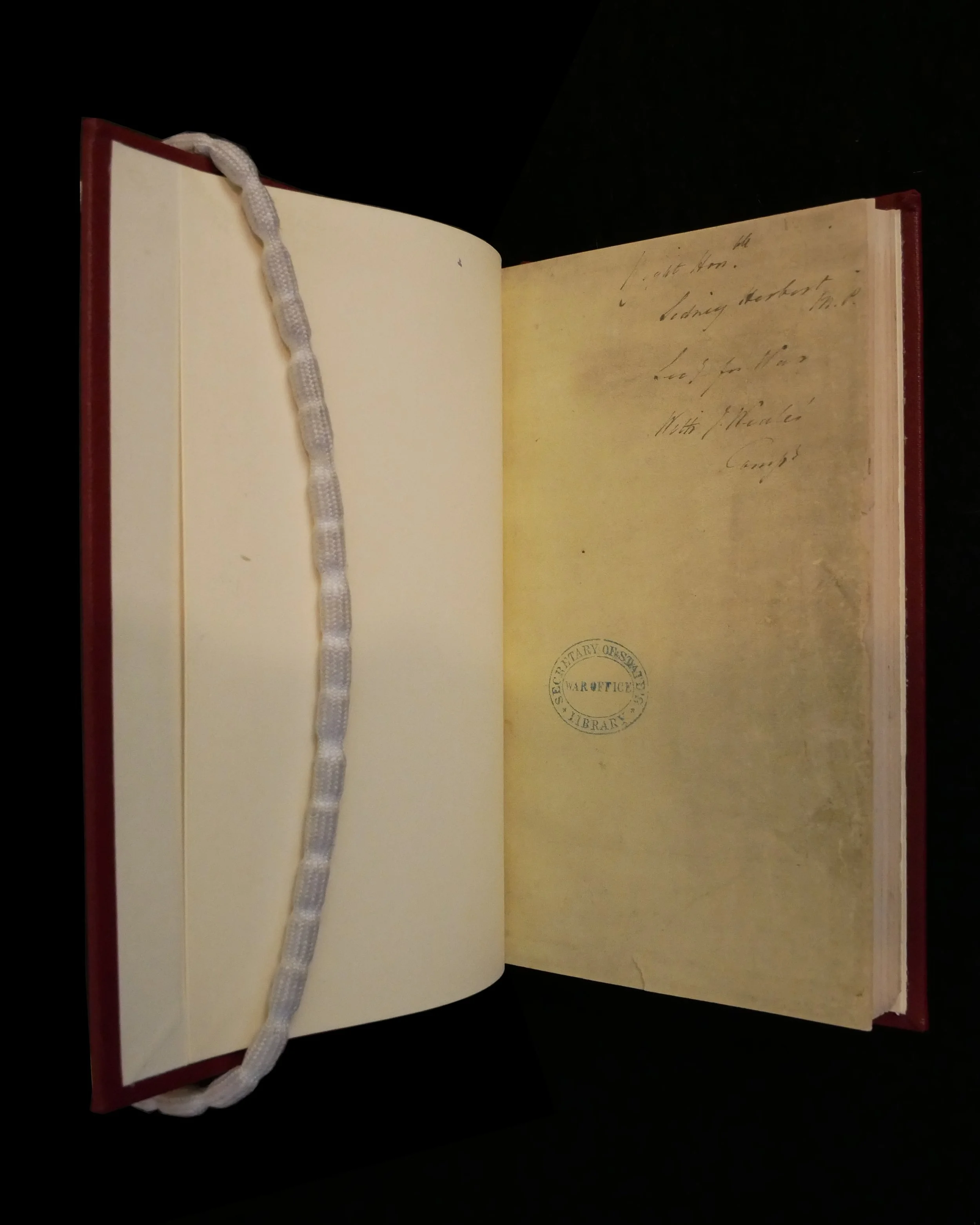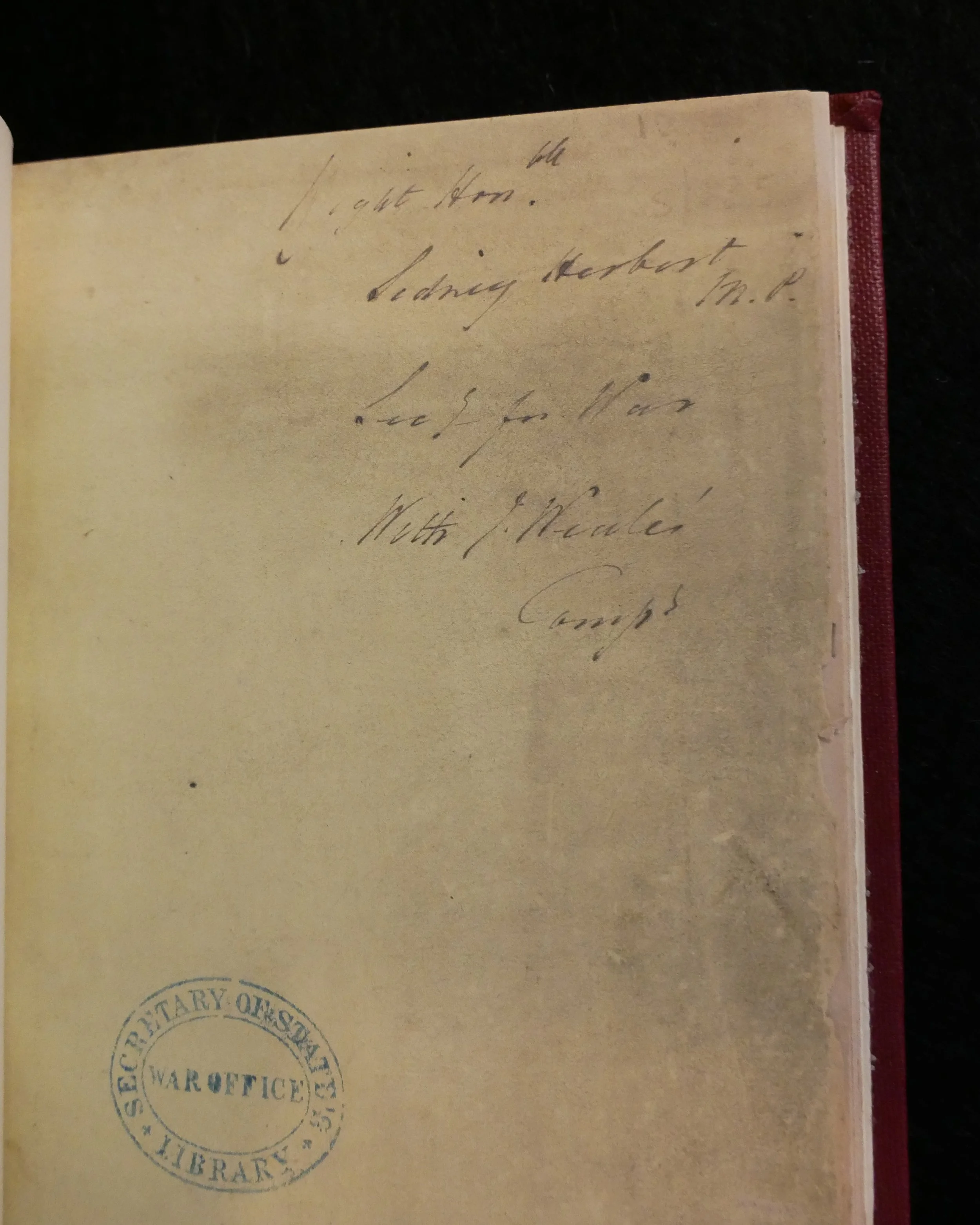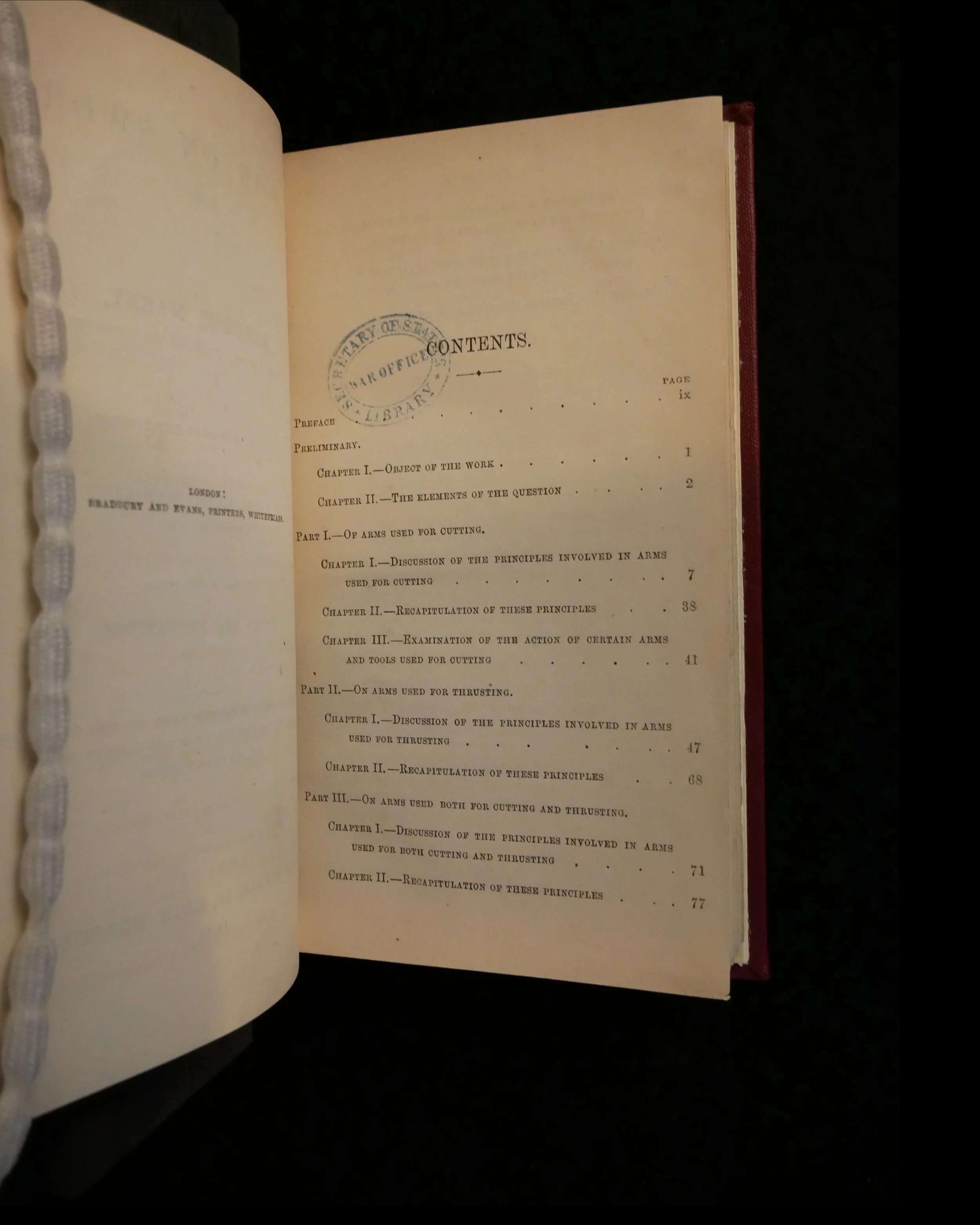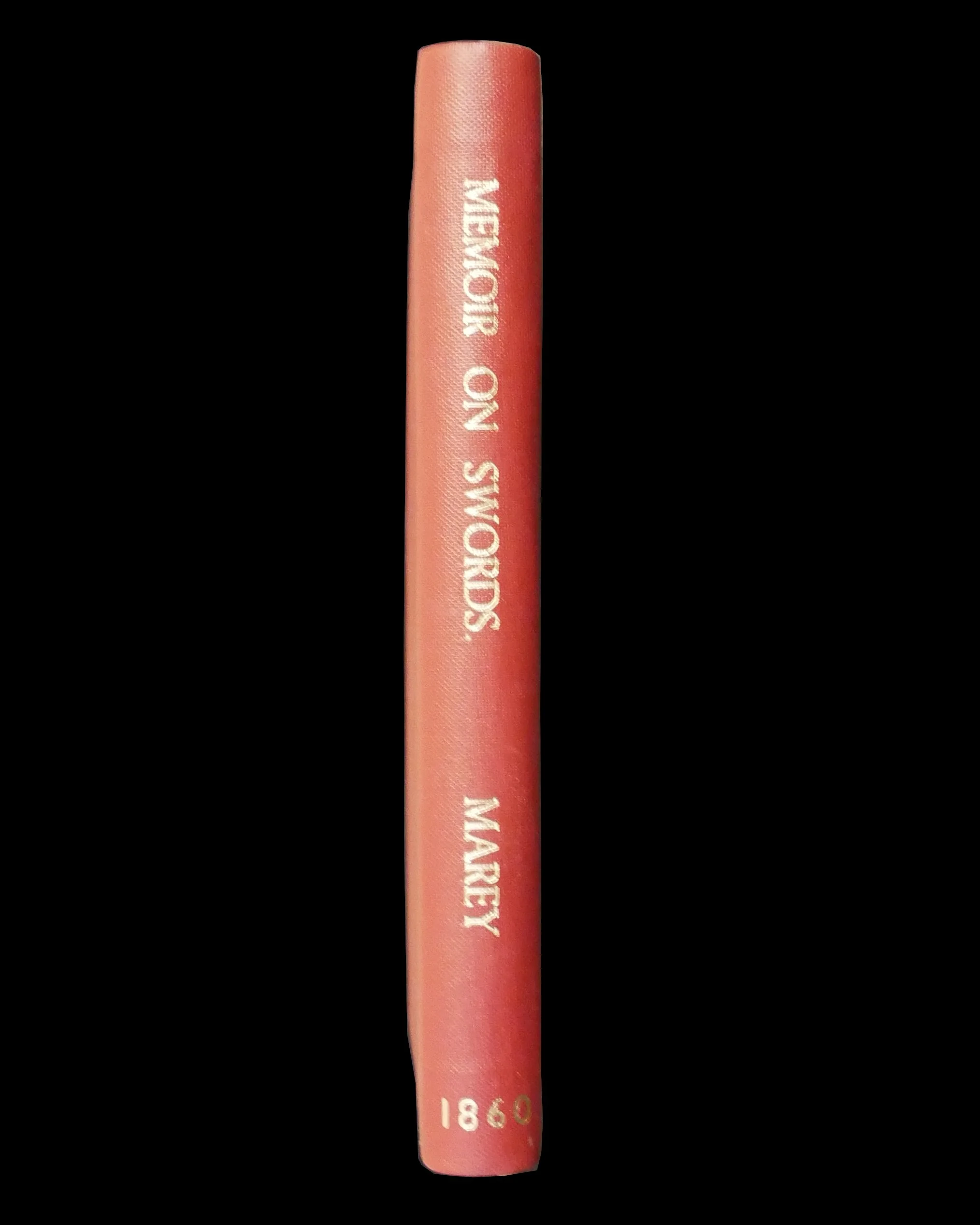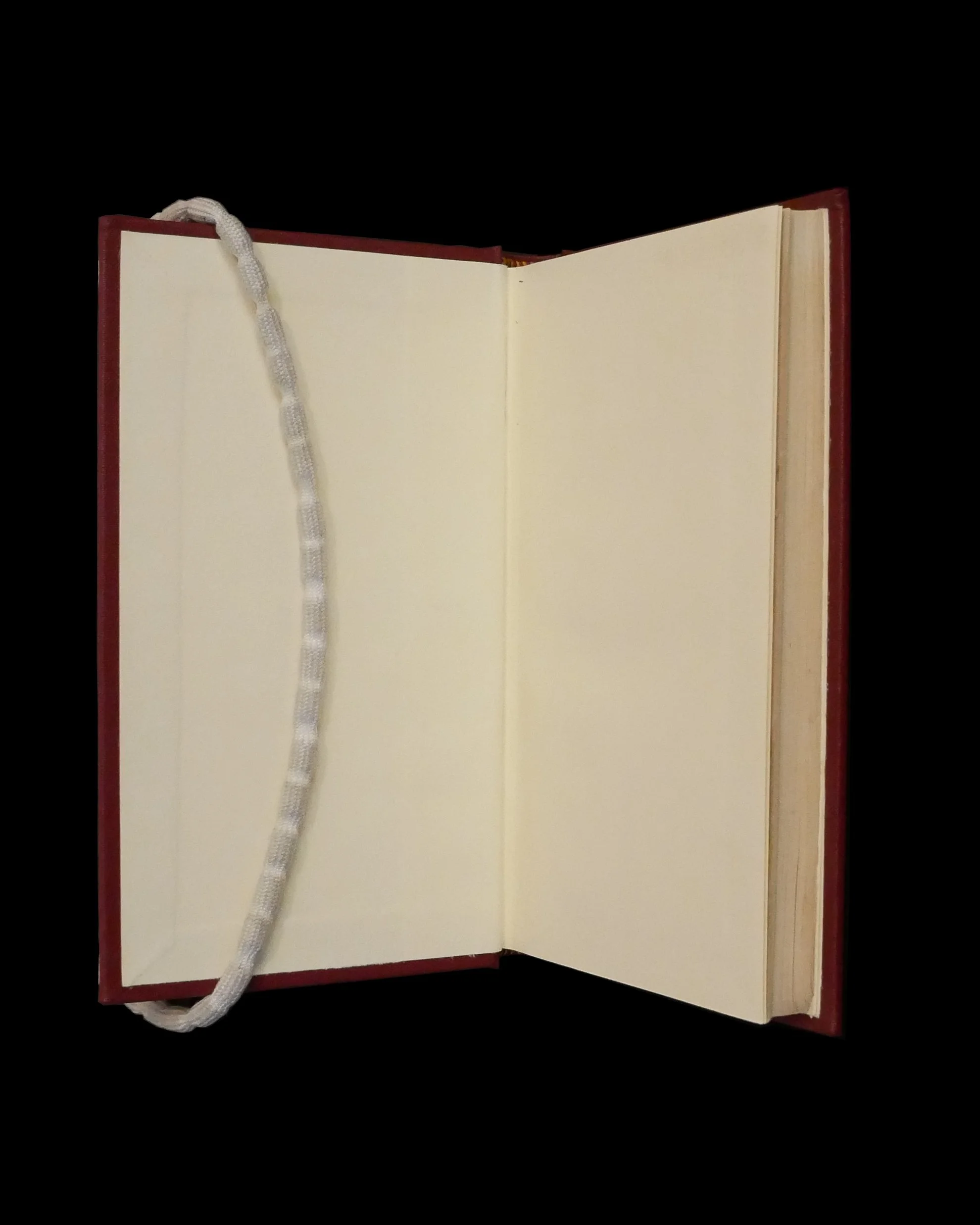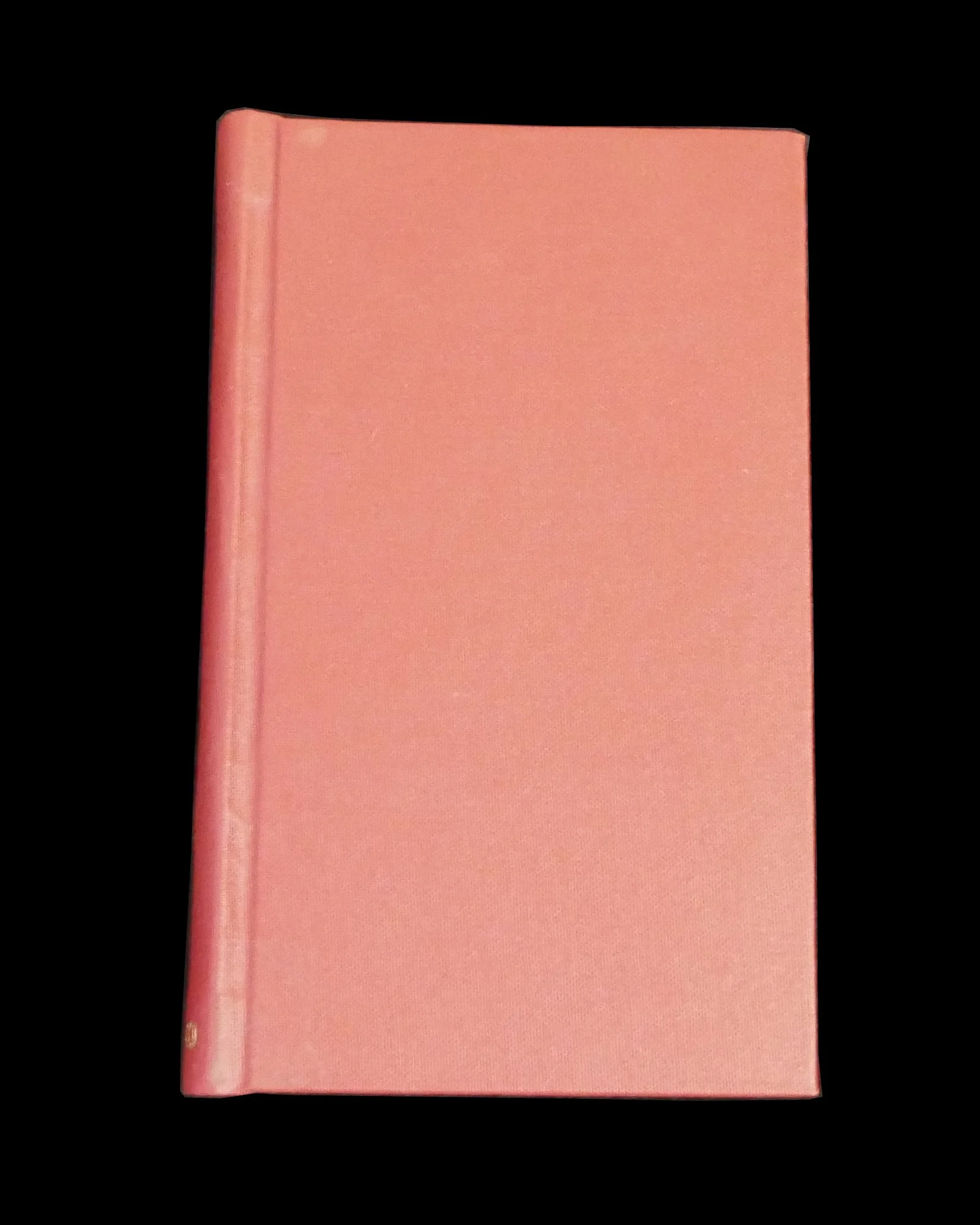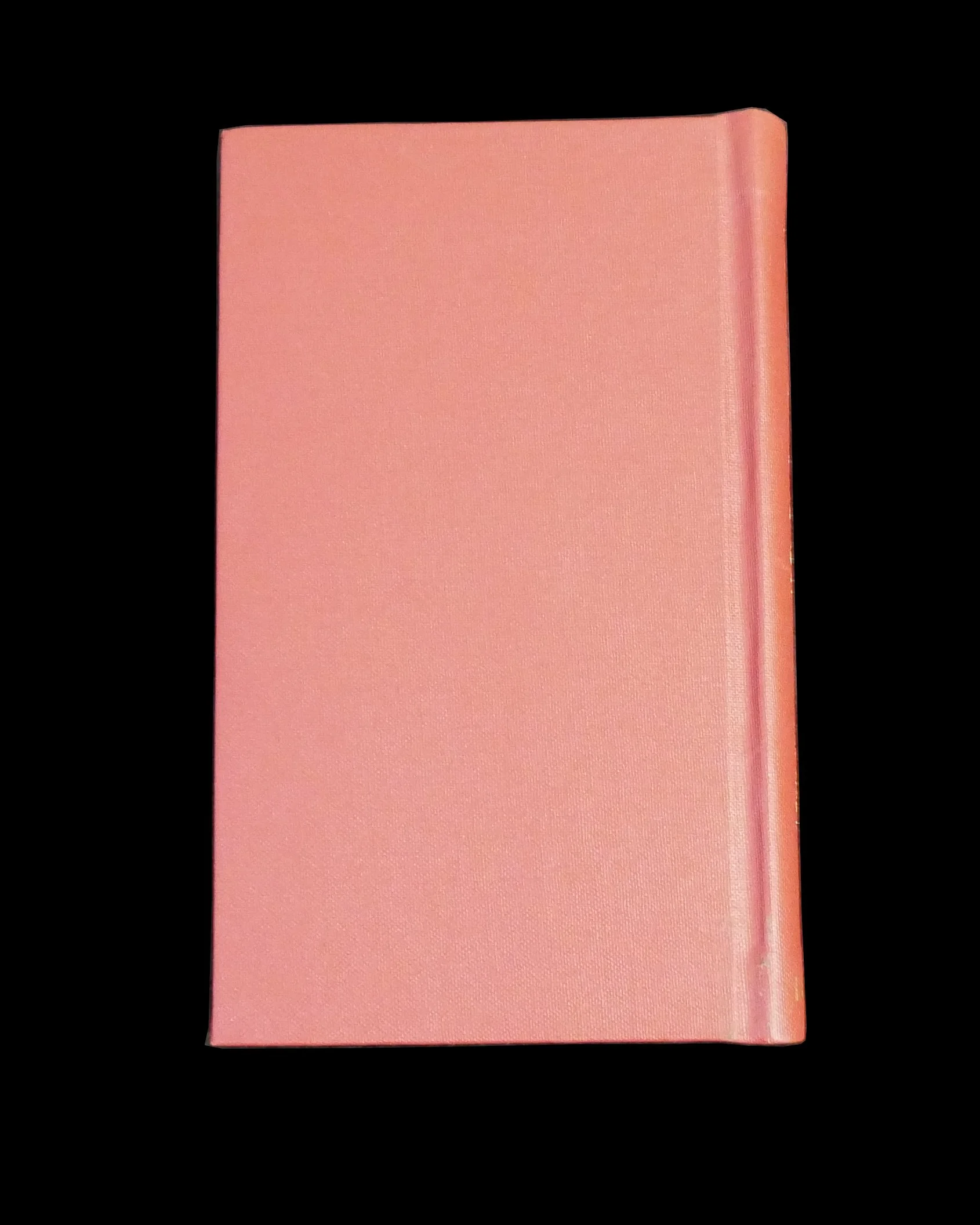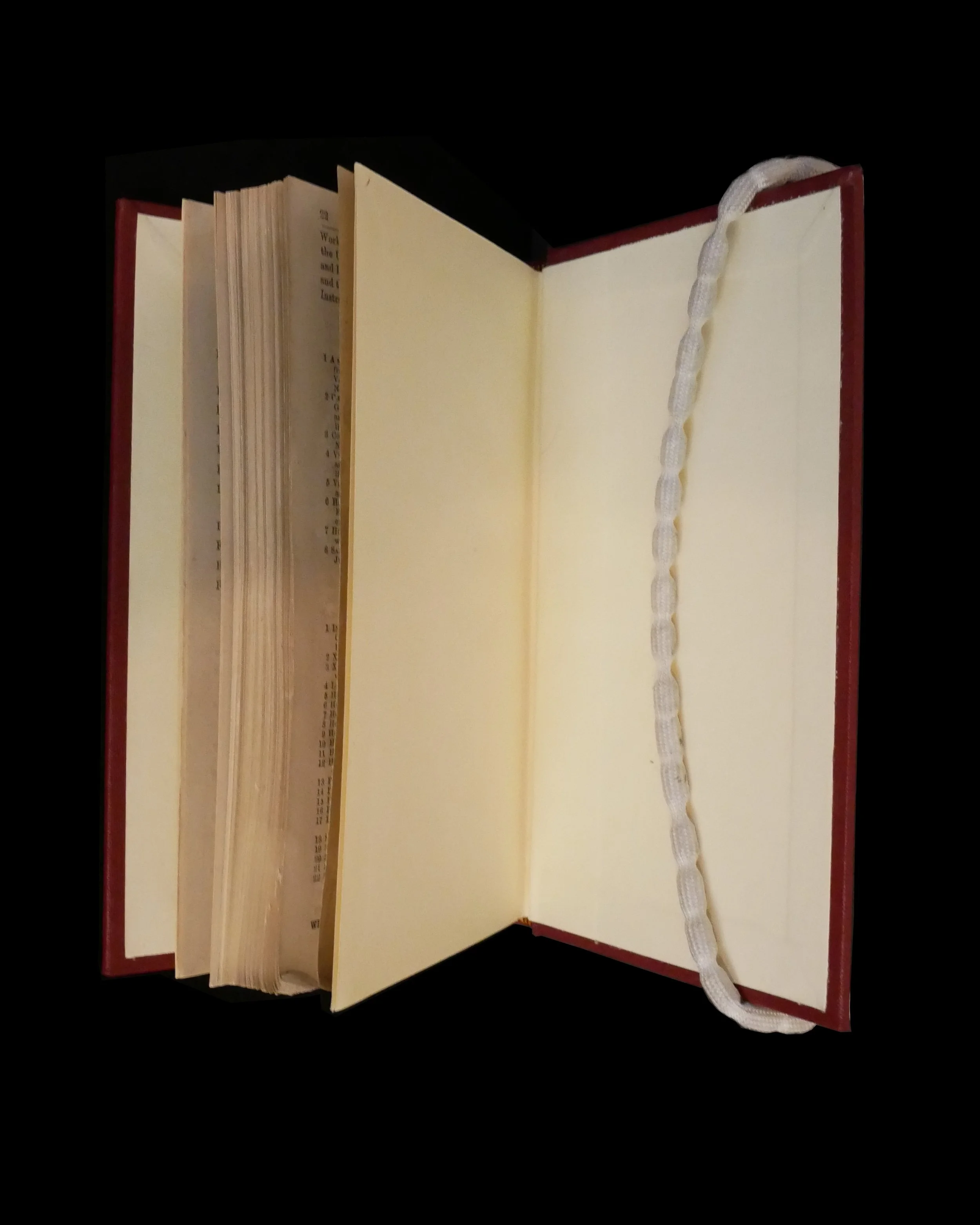Memoir Of Swords, Marey Translated by Lieut. Col. Henry Hamilton Maxwell
Memoir Of Swords by Guillaume-Stanislas Marey-Monge, 1841. Translated by Lieut. Col. Henry Hamilton Maxwell of the Bengal artillery, 1860. Published by John Weale, Holborn
Red buckram binding with gold lettering. The text block is tightly bound and trimmed with no loss to the text. 23 pages of advertisements at the end of the work. Inscription on the flyleaf as well as a library stamps for the Secretary of State of War office library. library marking on the title page and further stamps on the contents and first page. Inscription reads:
Right Honble
Sidney Herbert MP
Sec of State for War
With J Weales'
Comps
Guillaume-Stanislas Marey-Monge was born in 1796. And first known to have participated in the defence of Paris in 1815. He joined the horse artillery in 1817 in Strasbourg, where he rapidly rose through the ranks. According to his memoir, it is in 1836 that he started experimenting with sword designs which he had made at the neighboring Coulaux factory in Klingenthal. In 1830, then a captain, he was moved to the general staff of the Algerian campaign, and put in charge of commanding the soon to be named Chasseurs d’Afrique.
After peace was declared in 1839, Marey went back to Strasbourg where he was given the command of the 1st Cuirassiers, and went back to work on his sword designs and the writing of his memoir.
Sidney Herbert MP, 1st Baron Herbert of Lea
Herbert entered the House of Commons as Conservative Member of Parliament for a division of Wiltshire in 1832. Under Robert Peel he held minor offices, and in 1845 was included in the cabinet as Secretary at War. In 1852 he was appointed as Secretary at War in the coalition government of Lord Aberdeen from 1852 to 1854, being responsible for the War Office during the Crimean War. Herbert returned to office again as Secretary at War in 1859, by which time the post had been combined with the office of Secretary of State for War
Sidney Herbert was instrumental in arranging for his friend Florence Nightingale to lead a team of nurses out to Scutari during the Crimean War, and together he and Nightingale led the movement after the war for Army health and reform of the War Office.
Memoir Of Swords by Guillaume-Stanislas Marey-Monge, 1841. Translated by Lieut. Col. Henry Hamilton Maxwell of the Bengal artillery, 1860. Published by John Weale, Holborn
Red buckram binding with gold lettering. The text block is tightly bound and trimmed with no loss to the text. 23 pages of advertisements at the end of the work. Inscription on the flyleaf as well as a library stamps for the Secretary of State of War office library. library marking on the title page and further stamps on the contents and first page. Inscription reads:
Right Honble
Sidney Herbert MP
Sec of State for War
With J Weales'
Comps
Guillaume-Stanislas Marey-Monge was born in 1796. And first known to have participated in the defence of Paris in 1815. He joined the horse artillery in 1817 in Strasbourg, where he rapidly rose through the ranks. According to his memoir, it is in 1836 that he started experimenting with sword designs which he had made at the neighboring Coulaux factory in Klingenthal. In 1830, then a captain, he was moved to the general staff of the Algerian campaign, and put in charge of commanding the soon to be named Chasseurs d’Afrique.
After peace was declared in 1839, Marey went back to Strasbourg where he was given the command of the 1st Cuirassiers, and went back to work on his sword designs and the writing of his memoir.
Sidney Herbert MP, 1st Baron Herbert of Lea
Herbert entered the House of Commons as Conservative Member of Parliament for a division of Wiltshire in 1832. Under Robert Peel he held minor offices, and in 1845 was included in the cabinet as Secretary at War. In 1852 he was appointed as Secretary at War in the coalition government of Lord Aberdeen from 1852 to 1854, being responsible for the War Office during the Crimean War. Herbert returned to office again as Secretary at War in 1859, by which time the post had been combined with the office of Secretary of State for War
Sidney Herbert was instrumental in arranging for his friend Florence Nightingale to lead a team of nurses out to Scutari during the Crimean War, and together he and Nightingale led the movement after the war for Army health and reform of the War Office.
Memoir Of Swords by Guillaume-Stanislas Marey-Monge, 1841. Translated by Lieut. Col. Henry Hamilton Maxwell of the Bengal artillery, 1860. Published by John Weale, Holborn
Red buckram binding with gold lettering. The text block is tightly bound and trimmed with no loss to the text. 23 pages of advertisements at the end of the work. Inscription on the flyleaf as well as a library stamps for the Secretary of State of War office library. library marking on the title page and further stamps on the contents and first page. Inscription reads:
Right Honble
Sidney Herbert MP
Sec of State for War
With J Weales'
Comps
Guillaume-Stanislas Marey-Monge was born in 1796. And first known to have participated in the defence of Paris in 1815. He joined the horse artillery in 1817 in Strasbourg, where he rapidly rose through the ranks. According to his memoir, it is in 1836 that he started experimenting with sword designs which he had made at the neighboring Coulaux factory in Klingenthal. In 1830, then a captain, he was moved to the general staff of the Algerian campaign, and put in charge of commanding the soon to be named Chasseurs d’Afrique.
After peace was declared in 1839, Marey went back to Strasbourg where he was given the command of the 1st Cuirassiers, and went back to work on his sword designs and the writing of his memoir.
Sidney Herbert MP, 1st Baron Herbert of Lea
Herbert entered the House of Commons as Conservative Member of Parliament for a division of Wiltshire in 1832. Under Robert Peel he held minor offices, and in 1845 was included in the cabinet as Secretary at War. In 1852 he was appointed as Secretary at War in the coalition government of Lord Aberdeen from 1852 to 1854, being responsible for the War Office during the Crimean War. Herbert returned to office again as Secretary at War in 1859, by which time the post had been combined with the office of Secretary of State for War
Sidney Herbert was instrumental in arranging for his friend Florence Nightingale to lead a team of nurses out to Scutari during the Crimean War, and together he and Nightingale led the movement after the war for Army health and reform of the War Office.

